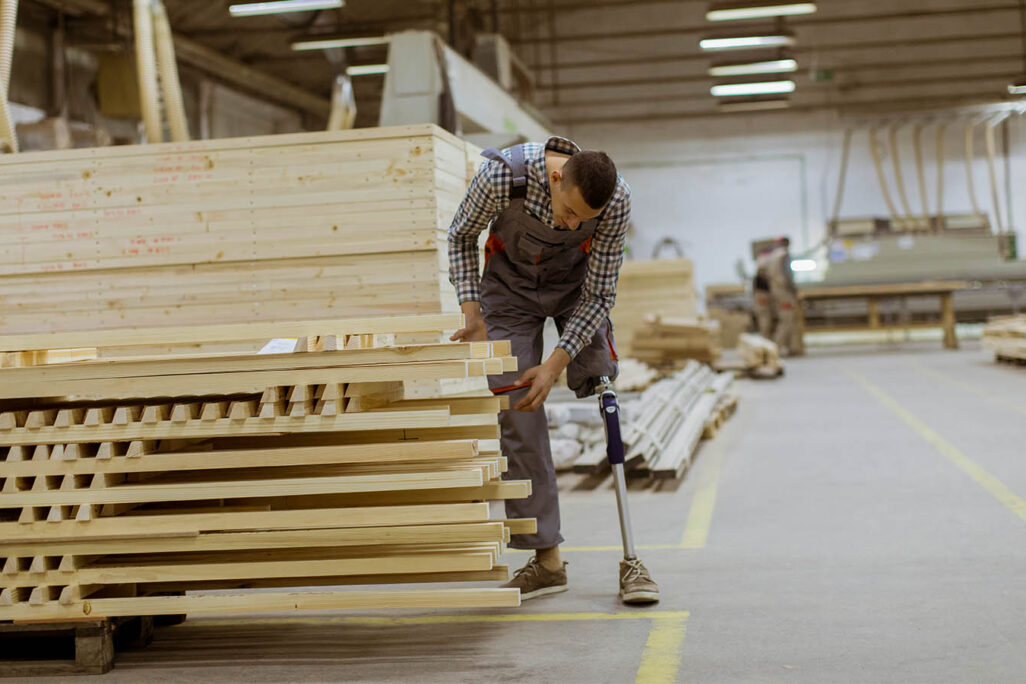
When he was only 20 years old, Khaled Mahamid from the Arab city of Umm-el Fahem, lost use of his legs in a car accident. Being permanently disabled meant that Mahamid could not find work, had to be financially supported by his family and would barely leave the house. "When they told me I was paralyzed for life and bound to a wheelchair, I couldn't believe it," he told Davar. "I was fed up with life, I'd spend my days waiting to die."
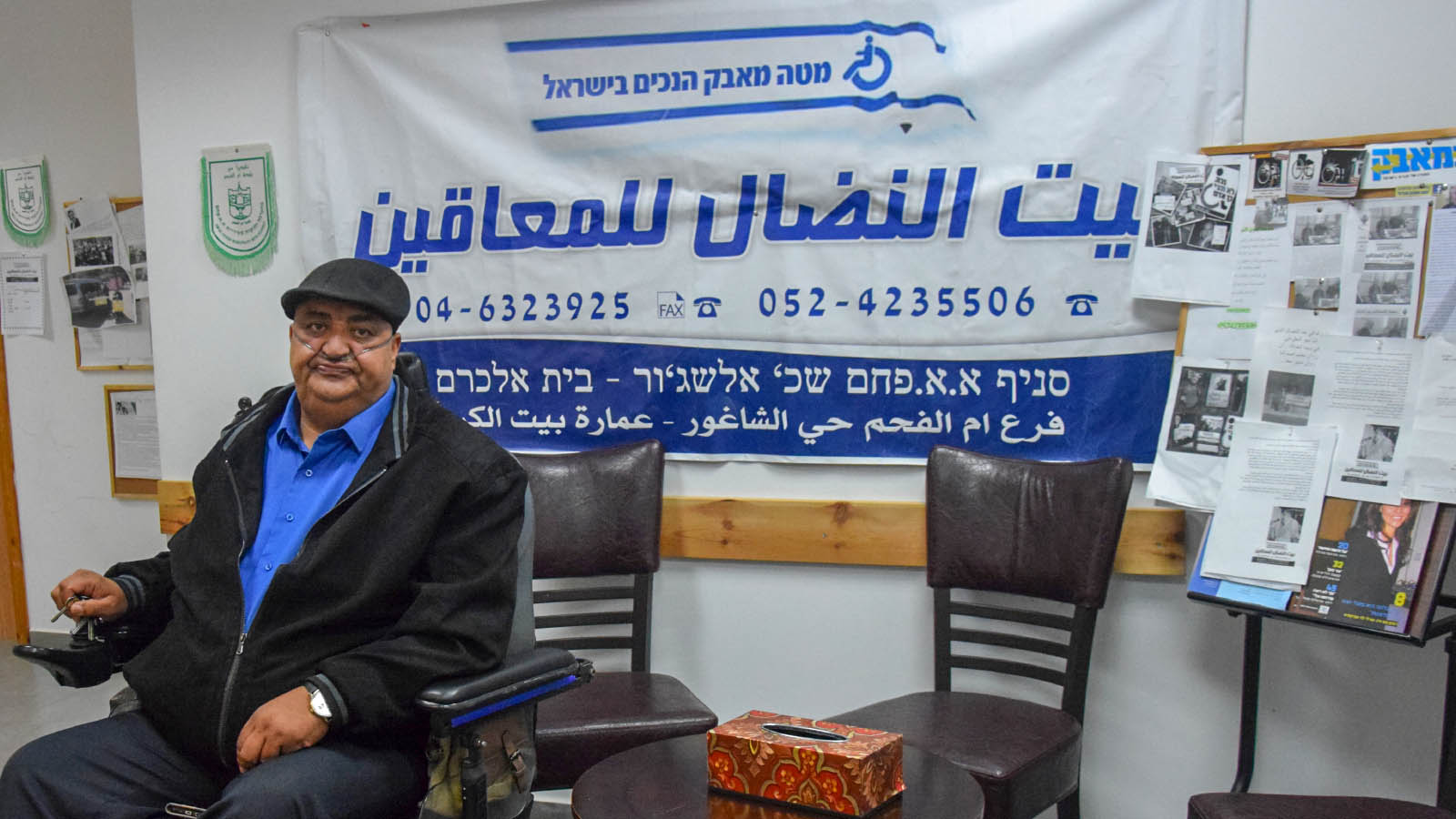
But Mahamid has since become involved as a social activist, demanding the labor market be more inclusive for people with disabilities. He has been a prominent member of a group of activists protesting the low levels of disability benefits and is involved in various projects aimed at raising levels of employment for people with disabilities.
The International Day of People with Disabilities is a good opportunity to examine the way Israeli society functions on this issue. People with disabilities are among the most marginalized groups in Israeli society, often suffering from negative stigmas and forms of social or economic exclusion. This is evident in the statistics: people with disabilities have some of the highest poverty rates and lowest rates of participation in the labor market. According to Mahamid, this is because employers tend to avoid hiring disabled people, even in cases where they fit job requirements, leaving many of them without a steady income. Things are even worse for disabled people from other marginalized social groups, including women or Arabs like Mahamid.
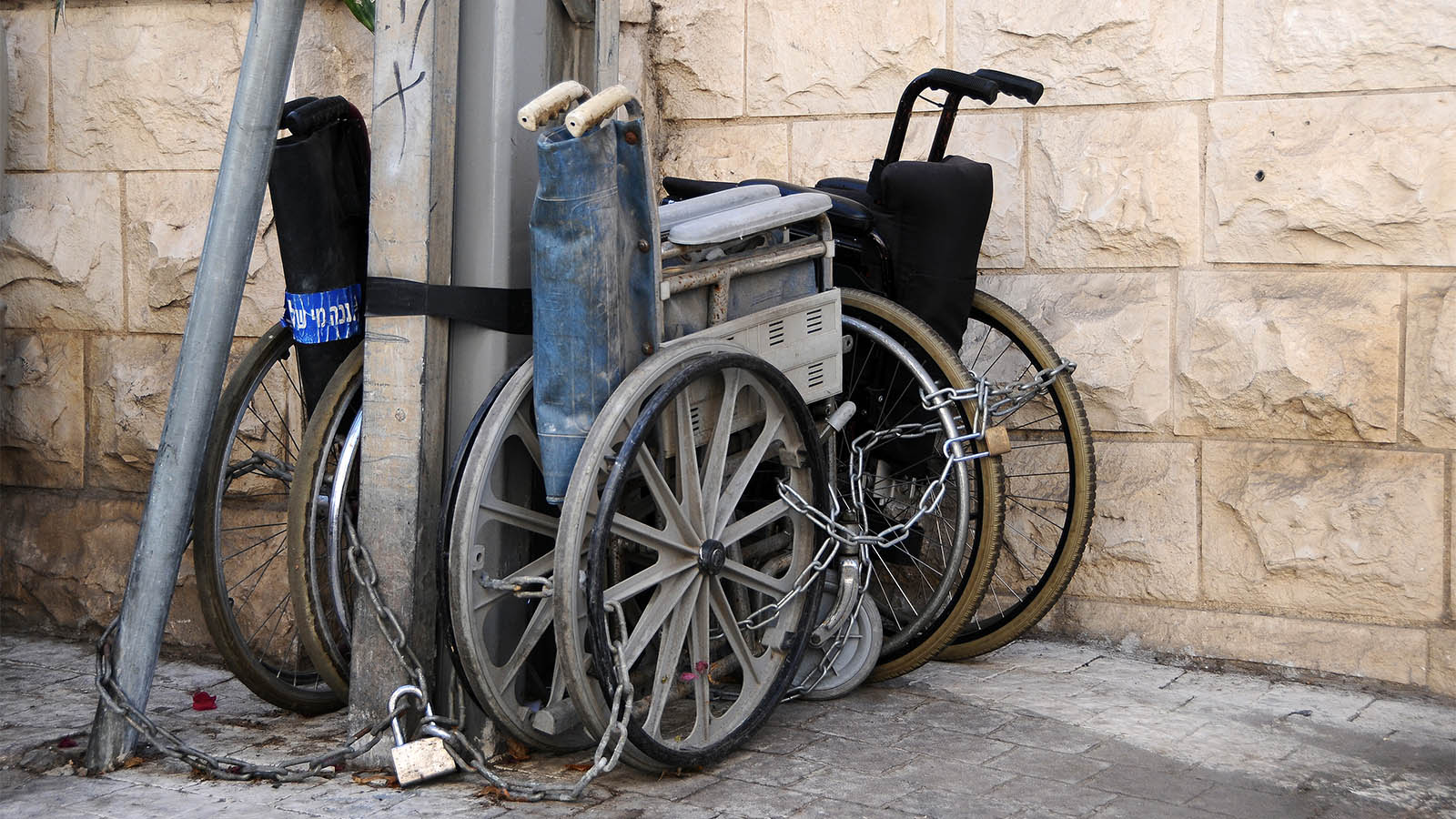
"I have a friend who sent out her CV to a lot of companies, but didn't receive a single invitation to an interview," he said. "We decided to put it to the test, and sent out the exact same CV with no mention of her disability. Unsurprisingly, she got a lot of replies." he added, smiling bitterly.
In recent years, efforts have been made to make the labor market more accessible to people with disabilities, but Mahamid says that "there's still so much to be done". In 2014, Israeli trade unions pushed for legislation to introduce a minimum requirement of 3 percent disabled employees in large companies. The legislation was passed the same year, but industries have been slow to comply. Nevertheless, in recent years, rates of participation in the labor market have risen – from 50 percent in 2011 to 60 percent in 2018.

This is good news, but over a quarter of people with disabilities report suffering from poverty and inability to cover basic needs. "I live off disability benefits, and my finances are catastrophic. Sometimes I have to choose between food and the drugs I need for my condition. It's a disgrace, and it has to change," said Mahamid.
Union action and legislation
In 2014, the Ministry of Labor signed into effect legislation making inclusion of people with disabilities obligatory for all companies with over 100 employees. According to the law, over the course of a five year transition period, every large company would have to introduce changes to the workplace to allow for 3 percent of the workforce to consist of people with disabilities. In the public sector, that figure is even higher – 5 percent of the workforce must, by law, be people with disabilities.
The legislation was originally drafted by the Histadrut, Israel's largest labor union. In 2014, the union threatened to go on strike if meaningful steps were not taken to reduce unemployment for people with disabilities, arguing for a legal minimum requirement for representation of people with disabilities in the workplace. Today the union offers guidance to companies and union representatives on ways to make the workplace more accessible and reach the legal employment targets.
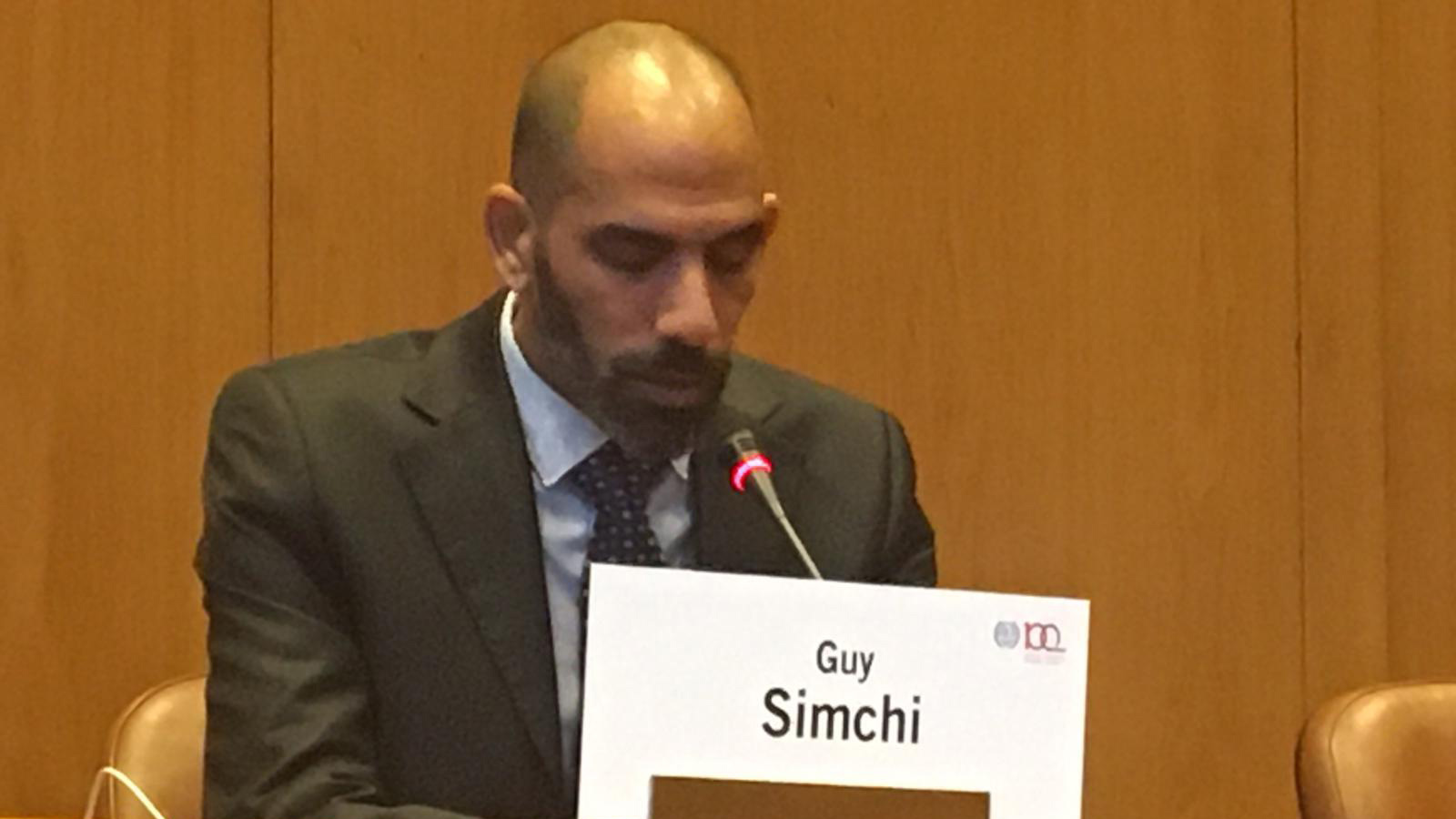
Guy Simchi, who serves as head of the Histadrut department overseeing the implementation of the law, lost his eyesight 15 years ago. Simchi told Davar that he sees opening employment possibilities for people with disabilities as a moral imperative.
"In the capitalist labor market, disabilities are linked to unemployment," he said. "This means that having a disability, even if you are still a functioning and productive individual, you still often suffer from low income."
But for Simchi it's not all about the income. "Another key aspect is giving people a sense of belonging, making them feel that they have an important role to play in our society. When people are unemployed, even though they are perfectly capable of working, it sends a message. It tells people with disabilities that they're not needed, that society has no use for them. That's a terrible thing to feel," he said.
Last week Simchi appeared at the International Labor Organization’s "Future of Work" conference in Geneva that dealt with making work more inclusive for people with disabilities. In his talk he stressed the way organized labor has changed prospects for inclusive work in Israel. "We believe that our main source of power to create change is in the 800,000 members of our union. Our unique advantage as a union is that we can help introduce people with disabilities into the workplace and help facilitate the changes needed to welcome them," he said.
A gradual change
Even today, almost six years after the legislation was passed, less than half of people with disabilities take part in the workforce. Many companies are still reluctant to take on employees with disabilities, with some people speaking out against what they regard as government interference in their business.
But Simchi insists that inclusion is not just a matter of charity, and that with the required adjustments, people with disabilities can prove to be productive workers just like anyone else. "You need to adjust some of the workplace features, that's true. But when you do you get perfectly motivated employees, no less productive than anyone else," he said.
A group of economists working with Simchi estimate that fully using the productive potential of people with disabilities could add as much as 6.4 billion shekels (1.8 billion dollars) to the Israeli economy. "It's really beneficial to both sides. It's just a matter of overcoming misconceptions about people with disabilities," said Simchi.
Simchi works together with the Ministry of Labor to oversee compliance with the law and help companies implement the necessary changes. Last week, the Ministry announced a 70 million shekel program to help connect between people with disabilities seeking jobs and employers. The program offers orientation courses in various fields, together with professional advice and guidance.

At the announcement of the program last week, Moti Elisha from the Ministry of Labor said that the government will do more to ensure that the labor market becomes more inclusive for people with disabilities. "Raising employment levels for people with disabilities is a matter of great national importance," he said. "Absolutely everyone benefits from this."
Marginalized groups
As with every disadvantage, people from already marginalized groups find it even more difficult to cope. This is particularly true for Arabs in Israel, who face extra obstacles when searching for a job.
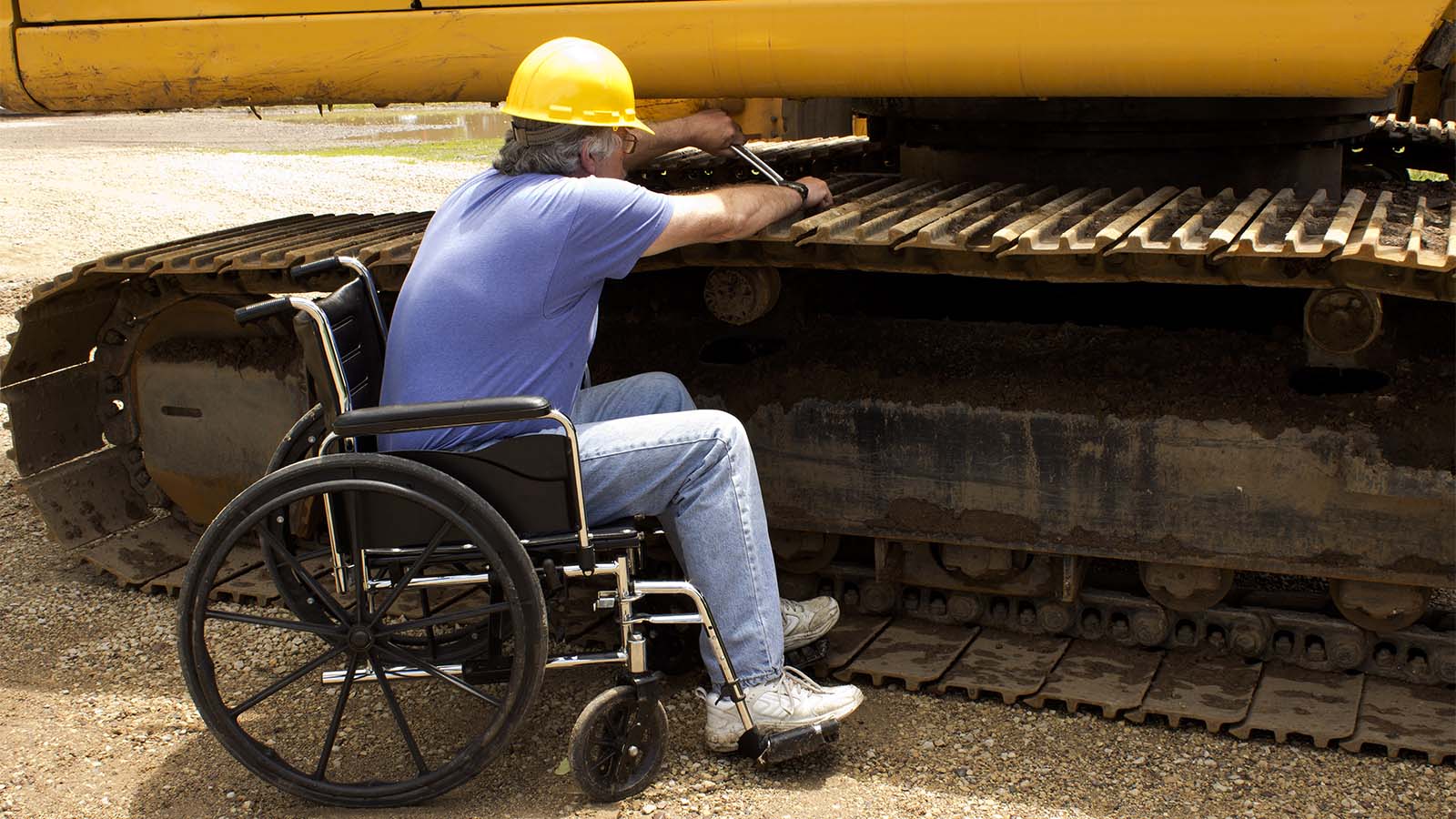
"An Arab person with disabilities finds it incredibly difficult to find work, even if he's exceptionally determined," said Mahamid. "For Arab women it's even more difficult. Even if she can persuade a company to make the necessary changes at the workplace, they might not want to take her on because she's an Arab. Unfortunately racism plays a part here, and for women it's even worse," he adds.
Here too, the statistics speak for themselves. As opposed to the Jewish population, where about 61 percent of people with disabilities are employed, only 27 percent of Arab people with disabilities have managed to find employment. In addition, while growth in employment rates has been rapid in Jewish communities, it has been far slower for Arabs with disabilities.
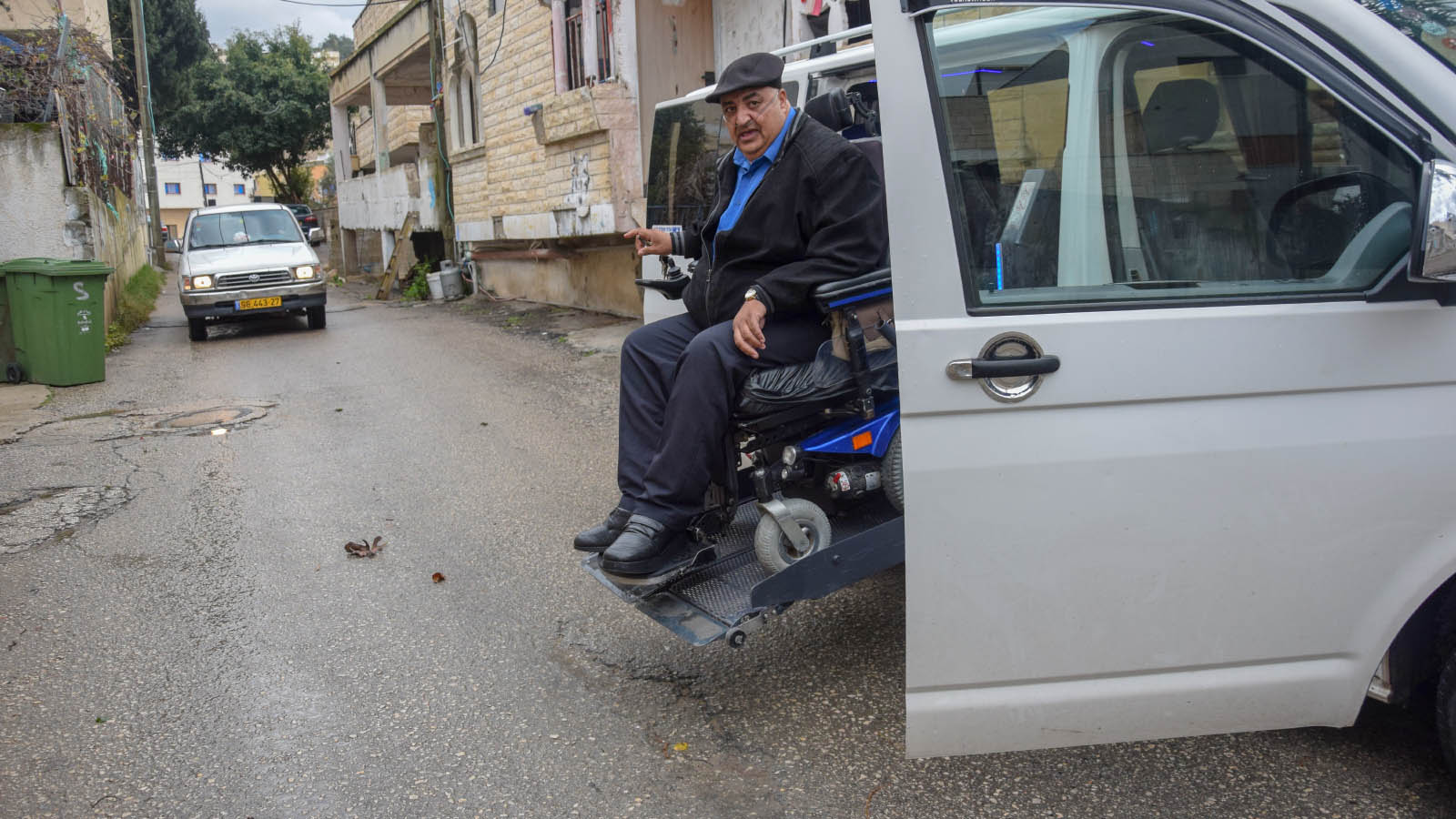
The government has been trying to raise levels of employment for people with disabilities in Arab communities by running Arabic language training programs and connecting between job seekers and employers. Recently, the Ministry of Labor held its annual conference for disabled job seekers in Arab communities, together with representatives from the Histadrut.
"It's an important thing they're doing, and we need more to address the issues facing people with disabilities in our community" said Mahamid.






